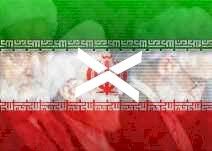Rasker

Joined: 03 Feb 2005
Posts: 1455
Location: USA
|
 Posted: Sat Feb 26, 2005 9:56 am Post subject: 1/30/05: A Historical Turning Point Posted: Sat Feb 26, 2005 9:56 am Post subject: 1/30/05: A Historical Turning Point |
 |
|
After 1/30/05
From the March 7, 2005 issue: Just four weeks after the Iraqi election of January 30, 2005, it seems increasingly likely that that date will turn out to have been a genuine turning point.
by William Kristol
03/07/2005, Volume 010, Issue 23
http://www.weeklystandard.com/
HISTORY IS BEST VIEWED IN the rear-view mirror. It's hard to grasp the significance of events as they happen. It's even harder to forecast their meaning when they're only scheduled to happen. And once they occur, it's usually the case that possible historical turning points, tipping points, inflection points, or just points of interest turn out in the cold glare of history to have been of merely passing importance.
But sometimes not. Just four weeks after the Iraqi election of January 30, 2005, it seems increasingly likely that that date will turn out to have been a genuine turning point. The fall of the Berlin Wall on November 9, 1989, ended an era. September 11, 2001, ended an interregnum. In the new era in which we now live, 1/30/05 could be a key moment--perhaps the key moment so far--in vindicating the Bush Doctrine as the right response to 9/11. And now there is the prospect of further and accelerating progress.
Consider three surprising testimonials from this past week--one from the Old Middle East, one from Old Europe, the third from Old New York.
From the Middle East, listen to Walid Jumblatt, the Lebanese Druze Muslim leader and member of parliament, formerly an accommodator of the Syrian occupation and no friend of the Bush administration or its predecessors. On February 21, Jumblatt, in Beirut, told the Washington Post's David Ignatius that he is determined to work to get the current Syrian-stooge government out of office and to get Syrian troops out of Lebanon. What accounts for his new sentiment--echoing and echoed by millions of others, in Lebanon and elsewhere in the Middle East? Here's Jumblatt:
It's strange for me to say it, but this process of change has started because of the American invasion of Iraq. I was cynical about Iraq. But when I saw the Iraqi people voting three weeks ago, 8 million of them, it was the start of a new Arab world. . . . The Syrian people, the Egyptian people, all say that something is changing. The Berlin Wall has fallen. We can see it.
Of course the assassination of Rafik Hariri was the proximate cause of the peaceful uprising the Lebanese are calling their "intifada." But plenty of people were assassinated in the old Middle East, and rarely did their deaths spark a democratic stirring. That was the pre-1/30/05 world. Now, after the Iraqi election, it seems possible that a democratic, nonviolent "intifada" has become the model for the new Middle East, replacing the suicide bombings and political murders of the old. It is possible to hope this is the case--and, more important, to work to make it so.
From Old Europe, listen to Claus Christian Malzahn of Der Spiegel, writing under the headline "Could George W. Bush Be Right?" Malzahn's answer: Perhaps.
President Ronald Reagan's visit to Berlin in 1987 was, in many respects, very similar to President George W. Bush's visit to Mainz on Wednesday. . . . The Germany Reagan was traveling in, much like today's Germany, was very skeptical of the American president and his foreign policy. When Reagan stood before the Brandenburg Gate--and the Berlin Wall--and demanded that Gorbachev "tear down this wall," he was lampooned the next day on the editorial pages. He is a dreamer, wrote commentators. Realpolitik looks different.
But history has shown that it wasn't Reagan who was the dreamer as he voiced his demand. Rather, it was German politicians who were lacking in imagination--a group who in 1987 couldn't imagine that there might be an alternative to a divided Germany. . . . When George W. Bush requests that Chancellor Schröder--who, by the way, was also not entirely complimentary of Reagan's 1987 speech--and Germany become more engaged in the Middle East, everybody on the German side will nod affably. But . . . Bush's idea of a Middle Eastern democracy imported at the tip of a bayonet is, for Schröder's Social Democratic party and his coalition partner the Green party, the hysterical offspring of the American neocons. Even German conservatives find the idea that Arab countries could transform themselves into enlightened democracies somewhat absurd. . . .
Europeans today--just like the Europeans of 1987--cannot imagine that the world might change. Maybe we don't want the world to change, because change can, of course, be dangerous. But in a country of immigrants like the United States, one actually pushes for change. In Mainz today, the stagnant Europeans came face to face with the dynamic Americans. We Europeans always want to have the world from yesterday, whereas the Americans strive for the world of tomorrow. . . .
It was difficult not to cringe during Reagan's speech in 1987. He didn't leave a single Berlin cliché out of his script. At the end of it, most experts agreed that his demand for the removal of the wall was inopportune, utopian and crazy.
Yet three years later, East Germany had disappeared from the map. Gorbachev had a lot to do with it, but it was the East Germans who played the larger role. When analysts are confronted by real people, amazing things can happen. And maybe history can repeat itself. Maybe the people of Syria, Iran, or Jordan will get the idea in their heads to free themselves from their oppressive regimes just as the East Germans did. When the voter turnout in Iraq recently exceeded that of many Western nations, the chorus of critique from Iraq alarmists was, at least for a couple of days, quieted. Just as quiet as the chorus of Germany experts on the night of November 9, 1989, when the wall fell.
Just a thought for Old Europe to chew on: Bush might be right, just like Reagan was then.
Surely Bush's impressive European trip might have put this thought in a few other European minds, as well--but only because that trip took place in the aftermath of 1/30/05.
As for Old New York, listen to Kurt Andersen in the February 21 New York magazine:
Our heroic and tragic liberal-intellectual capaciousness is facing its sharpest test since the collapse of the Soviet Union. Back then, most of us were forced, against our wills, to give Ronald Reagan a large share of credit for winning the Cold War. Now the people of this Bush-hating city are being forced to grant the merest possibility that Bush, despite his annoying manner and his administration's awful hubris and dissembling and incompetence concerning Iraq, just might--might, possibly--have been correct to invade, to occupy, and to try to enable a democratically elected government in Iraq. . . .
It won't do simply to default to our easy predispositions--against Bush, even against war. If partisanship makes us abandon intellectual honesty, if we oppose what our opponents say or do simply because they are the ones saying or doing it, we become mere political short-sellers, hoping for bad news because it's good for our ideological investment.
The Bush short-sellers--in the Middle East, in Europe, and here at home--are being squeezed. But now is no time for the president to let up, or to cash in. Now that Bush has gathered momentum, he needs to forge ahead. There will be bumps, and setbacks. But if Bush can succeed in Iraq, force Syria out of Lebanon, and undermine the mullahs in Iran, then historians will say: Bush was willing to fight--and Bush was right.
--William Kristol
© Copyright 2005, News Corporation, Weekly Standard, All Rights Reserved.
_________________
The Sun Is Rising In The West! Soon It Will Shine on All of Iran! Soon It Will Shine on All of Iran!  |
|

![[FREE IRAN Project] In The Spirit Of Cyrus The Great Forum Index](http://www.activistchat.com/images/ActivistChatStandsLogo.jpg)


 Soon It Will Shine on All of Iran!
Soon It Will Shine on All of Iran! 